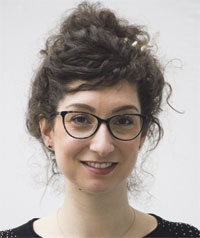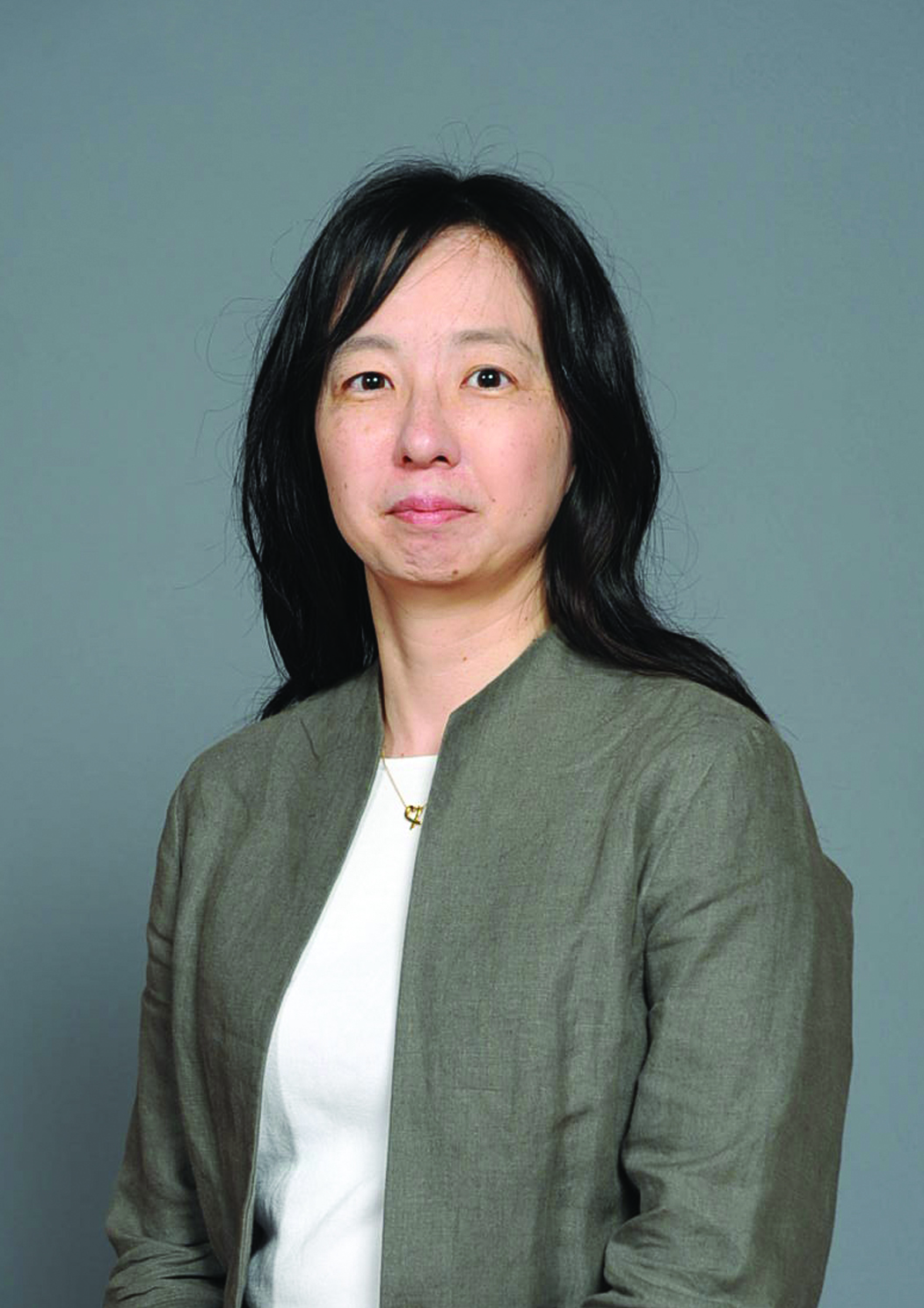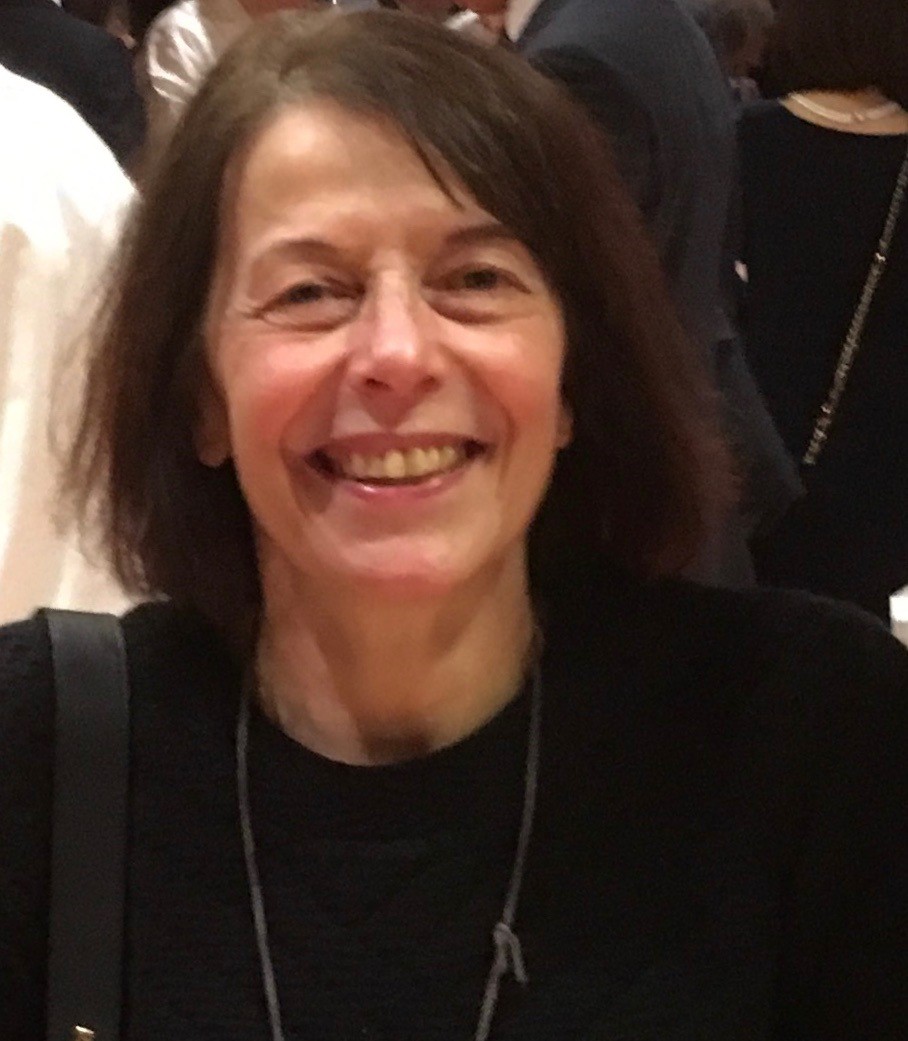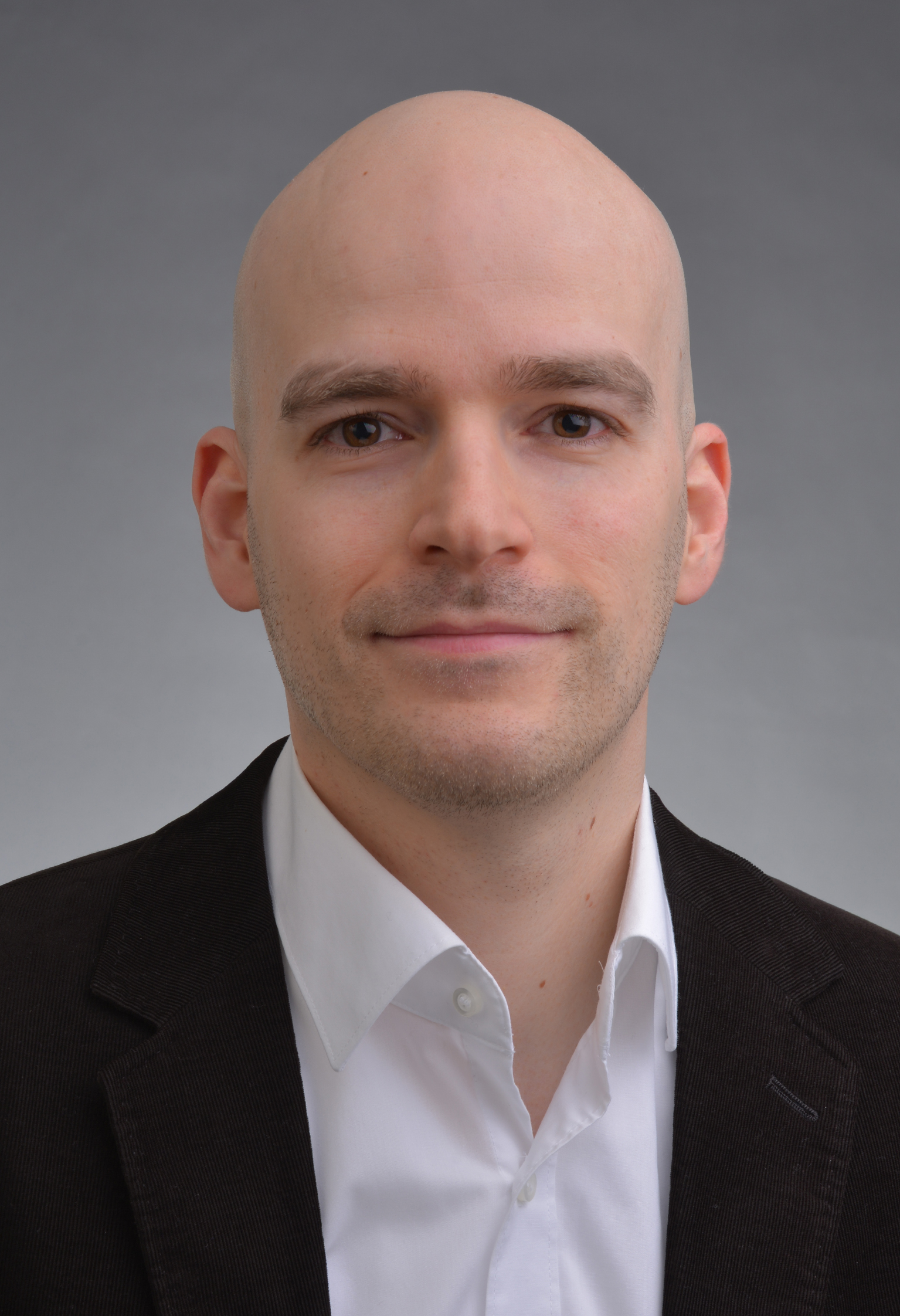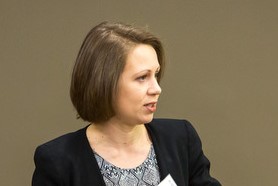Visiting Scholars Program
Visiting Research Scholars
Leah Kimber
PhD candidate and teaching assistant at the University of Geneva
Visiting scholar: September 1st 2018 – August 31st 2019
Email: Leah.Kimber@unige.ch
For more information on Leah and her work at the RBI, see here.
Leah is entering the final quarter of her dissertation as a PhD candidate enrolled at the University of Geneva, Switzerland where she holds a contract as a teaching assistant. Drawn by the issues of Global Governance, she applied for a scholarship as visiting scholar which she was awarded by the Swiss National Fund for Scientific Research. From August 2018, she is able to concentrate fully on her research while integrating an institute known for its expertise on the study of global issues. Her doctoral thesis tackles the issues of civil society inclusion in negotiations at the United Nations. More specifically she analyzes the moments of inclusion and those of exclusion while relying on fieldwork she carried out as a participant observer in the lead-up to the UN’s Third World Conference on Disaster Risk Reduction headed by the UNISDR in 2015. She sheds light on the individuals who constitute civil society – especially the Women’s Major Group advocating for gender equality and women’s rights – and on organizational practices by combining the perspective of the sociology of organizations as well as theories pertaining to interest groups. She is excited to be able to benefit from a research environment which addresses issues in line with those she raise in her doctoral research.
Sachiko Yoshimura
Professor of International Law and Organizations at the School of International Studies, Kwansei Gakuin University
Visiting Scholar: April 2018-March 2019
Email: syoshimura@kwansei.ac.jp
For more information on Sachiko and her work at the RBI, see here.
Sachiko Yoshimura is currently a professor of International Law and Organizations at the School of International Studies, Kwansei Gakuin University, Hyogo, Japan. Before joining Kwansei Gakuin University, she was a professor of international organizations at Hiroshima Shudo University until 2010. She was a visiting fellow at Corpus Christi College and Faculty of Law, Oxford University from 2002–2003. Her current research spans a broad range of areas of UN economic sanctions, international law, and organizations. She has published numerous books, book chapters, journal papers, and commissioned reports, including The Legal Problems on the United Nations Economic Sanctions (Kokusaishoin Publisher, 2003), Economic Sanctions by the United Nations Security Council (co-chair, a research commissioned by the Ministry of Foreign Affairs, Japan, 2007), International Law (co-authored, Kobundo Publisher, 2017), and Introduction to International Human Rights (co-authored, Houritsu Bunka Publisher, 2013). She is currently editing books on Theory and Practice of International Organizations (Kokusaishoin Publisher) and United Nations Financial Sanctions (Toshindo Publisher).
Anne Gonon
Professor at the Graduate School of Global Studies, Doshisha University
Visiting scholar: March 1st, 2018 to August 30th, 2018
Email: agonon@mac.com
For more information on Anne and her work at the RBI, see here.
As a professor at the Graduate School of Global Studies, Doshisha University, based in Kyoto (Japan), Anne is trained in sociology. Since 2004 and more March 11, 2011 and the beginning of the Fukushima nuclear disaster, her research has been taking two directions 1) Protection and Vulnerability: Public Policies and the Variety of Responses to Disasters: what kind of human protection can be conceived and enacted in situations of total vulnerability? 2) Knowledge, Society, and Democracy After Fukushima: this research focuses the place of information and knowledge in a nuclear society, and it aims to bring out the articulation between information/knowledge and human protection. The key words of her current research are: vulnerability; human security; care, empowerment; risk paradigm; nuclear social studies; socio-politics of knowledge and ignorance. During her sabbatical, Anne plans to collect her previous research on forms of life and human security with a strong point on ethics of care and use it to write a book. It will mainly focus on the way Japan deals with human security through the case of the Fukushima nuclear disaster which is the central “empirical experience” she mobilizes.
Martin Petzke
Lecturer at University of Lucerne
Visiting scholar: February 1 – August 31, 2018.
E-mail: martin.petzke@unilu.ch
Martin Petzke’s research investigates the ways in which social-scientific expertise and quantitative indicators shape, intervene in, and transform fields of professional practice. His current project employs perspectives from the sociology of quantification, science and technology studies, and cultural sociology in analyzing how the measurement of immigrant integration in statistical “integration monitoring reports” is affecting the work of integration offices at the municipal, state, and federal level in Germany. While at the RBI, he will be working on a book that focuses on the functions, unintended consequences, and performative effects of such quantifying practices in the governance of integration. The case of Germany can prove instructive as countries and cities in Europe and beyond increasingly resort to quantitative instruments in reflecting on and governing immigrant inclusion. In advancing his book project, Martin hopes to benefit from the RBI’s unique expertise and scholarly excellence in the field of international studies and international problems, as well as from the comprehensive focus on the topic of immigration among the distinguished faculty at the Graduate Center.
Dr Cecilia Jacob
The Australian National University
Visiting Scholar: April 9 to May 8, 2018.
E-mail: cecilia.jacob@anu.edu.au
Dr Cecilia Jacob is a Fellow in the Department of International Relations at The Australian National University. Her work focuses on civilian protection, mass atrocity prevention and international human protection norms. Cecilia has a geographic focus on armed conflict and political violence in South and Southeast Asia and has conducted extensive overseas field research. Her books include Child Security in Asia: The Impact of Armed Conflict and Cambodia and Myanmar (Routledge, 2014) and (edited with Alistair D. B. Cook) Civilian Protection in the Twenty-First Century: Governance and Responsibility in a Fragmented World (Oxford University Press, 2016). She has published numerous book chapters and articles in journals such as Security Dialogue, Global Governance, and The Global Responsibility to Protect. While at the Ralph Bunche Institute, Cecilia was conducting interviews for a current book project on UN reform and prevention that builds on her interest in the global governance of human protection norms and their implementation in local contexts of violent conflict. Cecilia is currently completing a co-edited volume on Implementing the Responsibility to Protect that examines the implementation of this global norm across levels of governance from the international to local, across thematic areas such as post accountability, human rights and security, and across geographic regions. Prior to her academic career, Cecilia has worked in NGOs in France and Southeast Asia, and worked for the advisory group of the Australian government’s aid agency in the areas of governance, capacity building and justice.
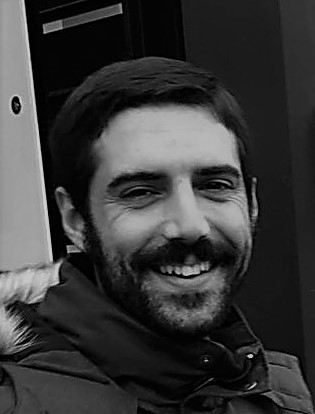
Dr. Ignasi Torrent
Anglia Ruskin University in Cambridge
RBI Visiting Scholar: September 2016 – March 2017
Email: ignasi.torrent@gmail.com
Dr. Ignasi Torrent is an associate lecturer at the Department of International Relations at Anglia Ruskin University in Cambridge. His previous academic engagements include research and teaching fellowships at Pompeu Fabra University in Barcelona, University of Sierra Leone, the Ralph Bunche Institute for International Relations at the Graduate Center at the City University of New York and University of Westminster in London. His teaching experience includes courses such as International Relations, International Institutions and Policy, International Relations Theory, Global Governance, United Nations: Peace and Security, Post-War Reconstruction, Development and Peacebuilding, International Security and Conflict, among others. His research interests are framed in the area of Critical Peace and Conflict Studies, the Anthropocene and new materialisms.

